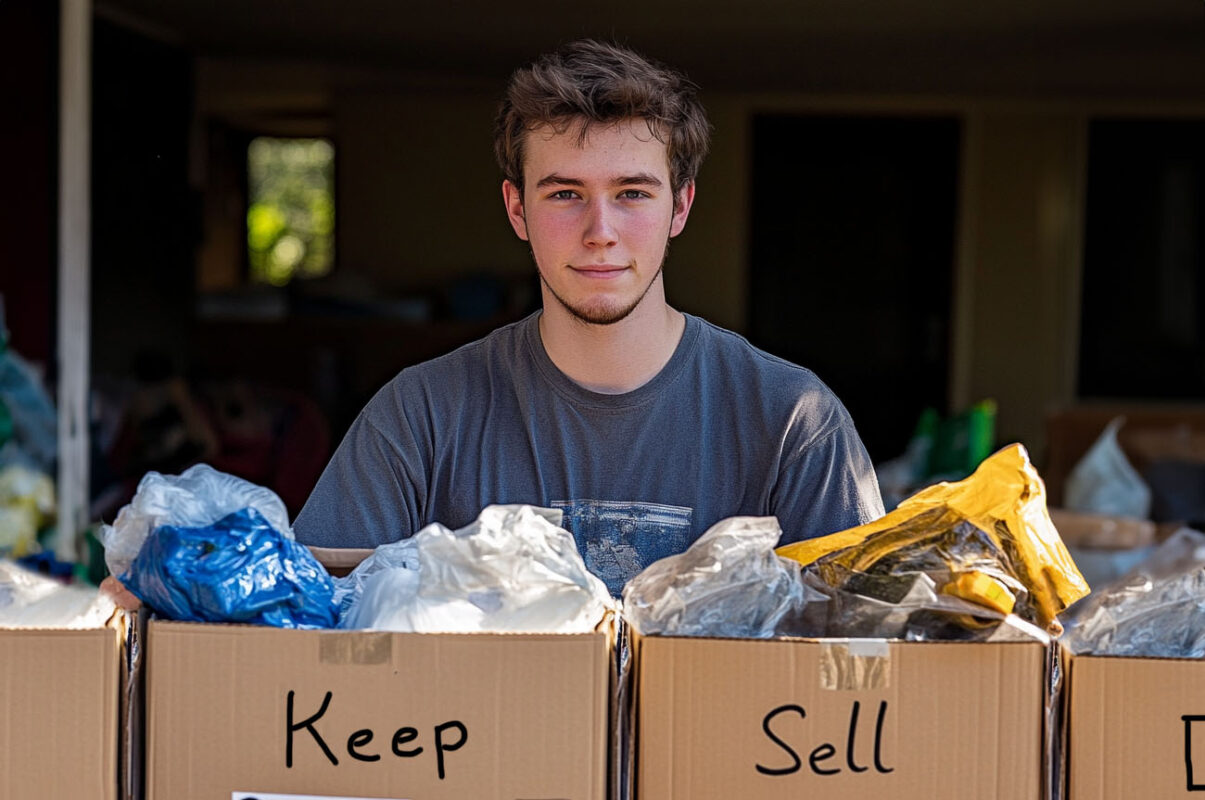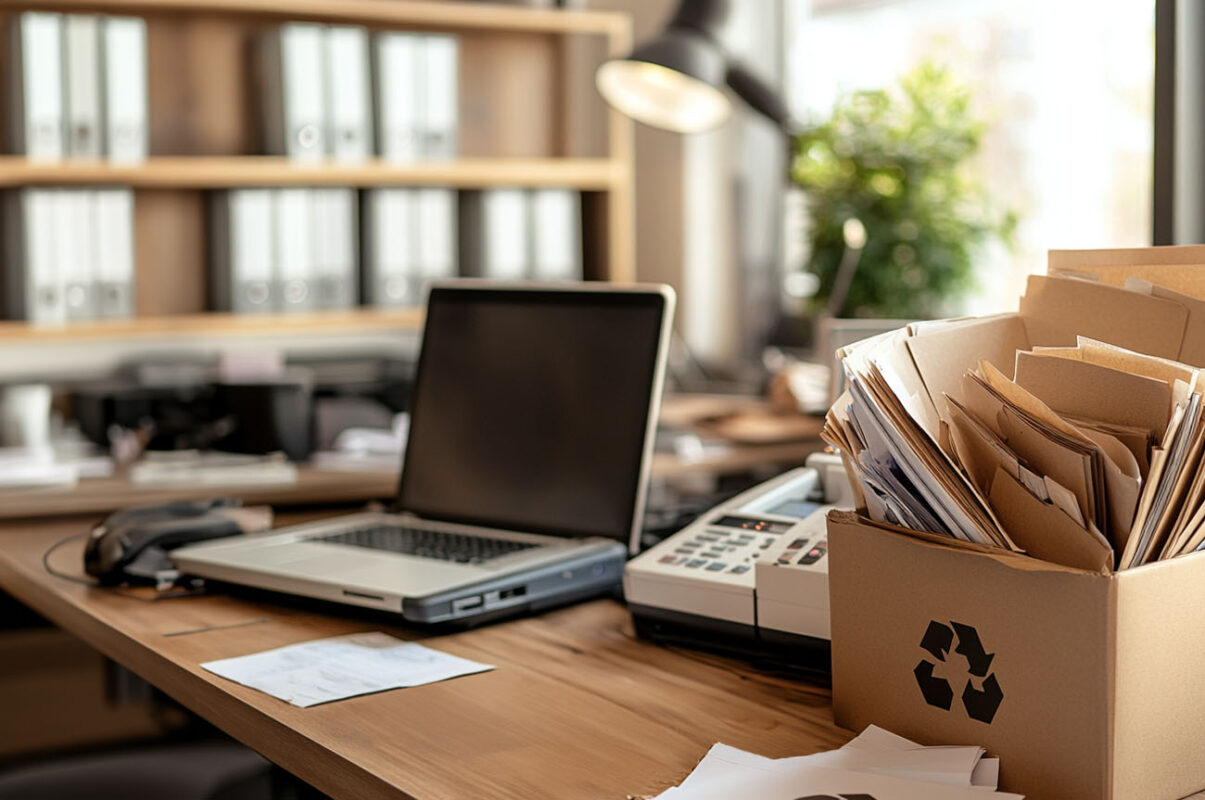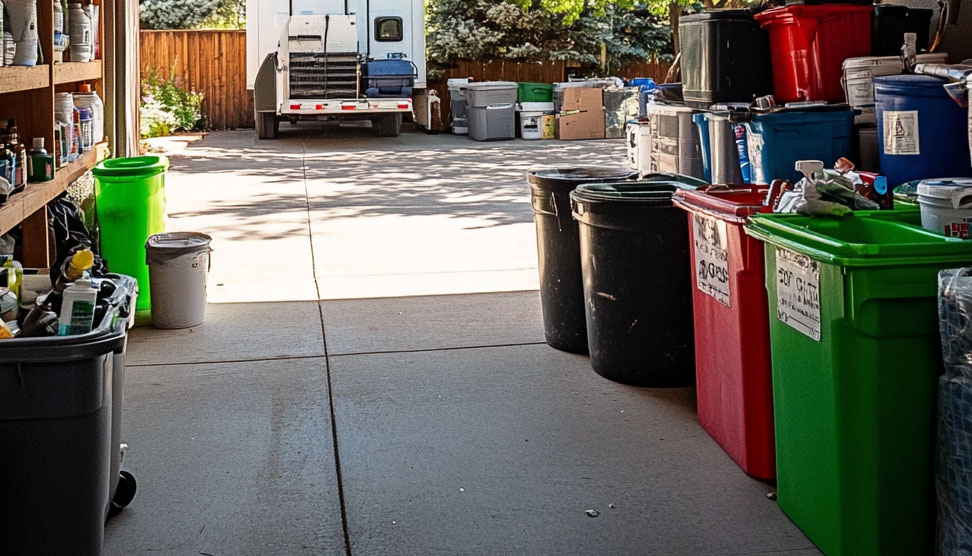How to Declutter Your Home Before a Big Move: Junk Removal Tips for a Stress-Free Transition
Get organized, reduce clutter, and make your move easier with these essential tips.
Before The Move
Moving to a new home can be both exciting and stressful, especially when it comes to packing and preparing for the big day. One of the best ways to simplify the moving process is by decluttering your home beforehand. Decluttering not only makes packing easier but can also reduce moving costs and ensure that you start fresh in your new space. Here’s a guide on how to declutter your home before a move and how junk removal services can play a key role in making the process smoother.
STEP 1. Start Early and Make a Plan
The earlier you start decluttering, the better. Ideally, begin the process at least a month before your moving date. Break your home into manageable sections—whether it’s by room or by category, like clothes, kitchen items, or electronics. This will keep you from feeling overwhelmed.
Pro Tip:
Create a timeline and stick to it. For example, dedicate specific days to certain tasks, like clearing out the garage or sorting through old paperwork.
74%
Americans that say they have too much stuff and struggle with organizing it.
Decluttering for a move can help resolve this issue, giving people a fresh start in their new home.
$1,250-$4,890
The average cost of hiring movers is between $1,250 and $4,890 depending on distance and weight.
Decluttering reduces weight and volume, lowering the overall cost of professional movers.
20-30%
Moving costs can be reduced by 20-30% by decluttering and getting rid of unwanted items before moving.
Shows a direct financial benefit to decluttering before a move.
300,000 Items
A typical household has around 300,000 items, many of which are never used.
Highlights the excess most people accumulate and why decluttering is essential before moving.
STEP 2. Sort Through Belongings with the 4-Box Method
A key strategy when decluttering is to use the 4-Box Method. This method helps you organize your belongings systematically:
- Keep: These are items you use regularly or have sentimental value. Be mindful of keeping only what you truly need and will use in your new space.
- Donate: Items in good condition that no longer serve you but could be useful to someone else should be donated. Be sure to research local charities or donation centers to drop them off.
- Sell: Items that are valuable or in great condition, such as electronics, furniture, or designer clothes, may be worth selling. Consider hosting a yard sale or using online platforms like eBay, Facebook Marketplace, or local selling apps.
- Discard: Anything that’s broken, unusable, or outdated (think old electronics, worn-out clothes, expired beauty products) should be thrown away. This is where a junk removal service can be extremely helpful—they can remove bulky or large amounts of waste quickly and efficiently.
Extra Tip:
Set a time limit for each room so you don’t get bogged down in decision fatigue. For instance, give yourself two hours to go through the kitchen, or three for your bedroom.
STEP 3. Focus on Large Items and Furniture
Larger items, like furniture and appliances, require more thought when deciding whether to move them. Consider these factors:
- Will it fit in your new home? Measure large pieces like sofas, dining tables, and beds to make sure they’ll fit in your new space. If they’re too big or won’t fit the style of your new home, it’s time to part with them.
- Is it worth the cost of moving? Moving companies charge based on weight and volume. Transporting heavy furniture that you don’t love or use may not be worth the extra cost.
- Can it be easily replaced? If an item is easily replaceable or outdated, it’s usually better to discard or donate it.
For old appliances and furniture that need to be discarded, hiring a junk removal service is a great way to avoid the hassle of trying to dispose of them yourself.
STEP 4. Don’t Overlook Paper Clutter
One area that’s often neglected during decluttering is paperwork. Moving provides an ideal opportunity to digitize important documents and get rid of old, unnecessary paperwork. Here's how to manage paper clutter:
- Scan and Save: Digitize important documents like tax returns, contracts, or medical records by scanning them and saving them to the cloud or an external hard drive.
- Shred Sensitive Documents: For any documents that contain personal information (e.g., bank statements, bills), shred them before discarding.
- Recycle Non-Sensitive Papers: Old magazines, expired coupons, and unnecessary paperwork can be recycled.
Reducing paper clutter will make your move easier and prevent piles of papers from taking up space in your new home.
STEP 5. Declutter Personal and Sentimental Items
Deciding what to do with sentimental items—such as family heirlooms, old photos, or childhood keepsakes—can be difficult. Instead of rushing the process, follow these tips:
- Keep What Brings Joy: Ask yourself if the item brings positive memories or serves a purpose in your life. If not, it may be time to let go.
- Limit Keepsakes: Consider creating a small “memory box” for sentimental items rather than holding onto everything. This will help you preserve special memories without overburdening your new home with unnecessary items.
- Digitize Photos: Old photo albums take up a lot of space. You can scan photographs to store them digitally, keeping the memories without the bulk.
STEP 6. Properly Dispose of Hazardous Waste
During your decluttering process, you might come across hazardous materials like paint, cleaning products, batteries, or chemicals. These items can’t be disposed of in regular trash bins. Many junk removal companies offer specialized services for disposing of hazardous waste safely and in compliance with environmental regulations.
Check with your junk removal provider to see if they handle:
- Old paint cans
- Pesticides
- Cleaning chemicals
- Fluorescent light bulbs
- Batteries
STEP 7. How Junk Removal Services Can Help
Junk removal services are invaluable during a move, especially when you’re dealing with bulky items or large amounts of waste. They offer several benefits that simplify your move:
- Efficient Removal: Junk removal companies can take care of everything in a single trip, saving you multiple trips to the landfill or recycling center.
- Time Savings: Instead of spending hours trying to figure out how to dispose of various items, a professional service handles it for you.
- Environmentally Friendly: Many junk removal companies recycle or donate usable items, reducing landfill waste and giving back to the community.
- Stress-Free Process: Moving is stressful enough without having to worry about removing junk. With professionals taking care of the heavy lifting, you can focus on more important aspects of your move.
STEP 8. Final Steps: Packing and Prepping for Your Move
Once you've decluttered, packing will be a breeze. Here are some final tips to help you wrap up:
- Pack By Category: After decluttering, pack similar items together—kitchen utensils in one box, bedroom decor in another. This makes unpacking easier at your new home.
- Label Clearly: Label each box with the room it belongs in and a brief description of its contents. This will help both you and your movers know where everything goes.
- Prepare an Essentials Box: Pack a box with essentials like toiletries, a change of clothes, basic kitchen items, and any important documents you’ll need right away after your move.
Final Thoughts
Decluttering before a big move not only helps streamline the packing process but also sets you up for success in your new home. By following these tips and leveraging junk removal services to handle unwanted items, you’ll make your move smoother, less stressful, and more organized.
Remember, moving is a fresh start, and decluttering allows you to embrace this new chapter without being weighed down by unnecessary stuff.



















